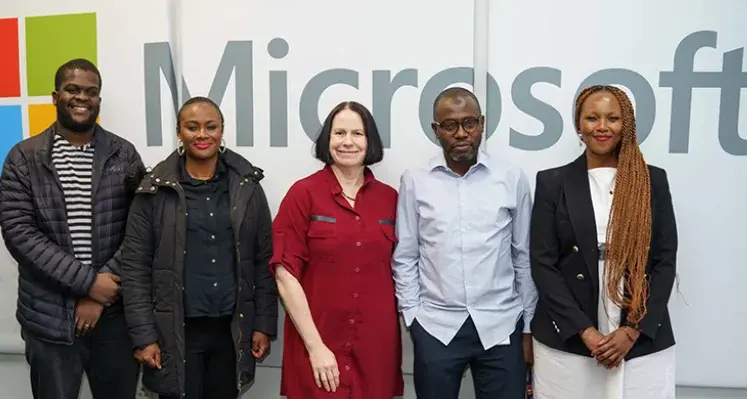At an AI Summit hosted at Microsoft South Africa’s offices, several collaborators on a recently launched whitepaper gathered to discuss findings and future considerations for work and AI opportunities on the continent
Africa has a unique chance to shape the future of work as large language learning models (LLMs) continue to evolve and applications are still in their early stages. This insight comes from the "AI and the Future of Work in Africa" whitepaper, produced by Microsoft alongside various industry experts from across the continent.
GenAI: Set to transform Africa
With nearly one billion Africans under the age of 35 and projections indicating that the continent will house nearly half of the world's youth population by the end of the century, Africa is set to contribute significantly to the global workforce. Currently, up to 12 million young Africans enter the labor market annually. However, a report from the International Labour Organisation states that over 20% of these youths are neither employed nor engaged in education or training.
“We see a significant role for generative AI to not only transform work environments but also foster opportunities for the youth to create jobs, innovate, and help drive economic growth and stability across the continent,” commented Ravi Bhat, chief technology and solutions officer at Microsoft Africa.
The whitepaper suggests that generative AI is expected to significantly alter knowledge worker jobs, impacting the nature of work, required skills, and produced outputs. McKinsey research indicates that generative AI (GenAI) could drive labor productivity growth by up to 0.6% annually through 2040, contingent on the pace of technology adoption and the reallocation of worker time to other activities.
“Generative AI has significant potential to advance human capabilities,” commented Jacki O’Neill, director at Microsoft Research Africa. “As more people across Africa gain access to GenAI tools through their internet-enabled devices and more affordable data, the barriers to access are being reduced and opportunities for skilling can increase.”
“But it is not only information workers that stand to benefit from GenAI.”
The potential of GenAI to revolutionise industries such as agriculture, healthcare, and services must be balanced by preparing the youth with the skills necessary for an AI-transformed labor market, ensuring they are not left behind in this technological evolution.
Therefore, it is crucial to develop skills across the spectrum, from deploying and using GenAI tools effectively at work to building innovative applications and technologies on top of these models. This also includes advancing post-graduate skills in areas such as machine learning, natural language processing, human-computer interaction, cybersecurity, and systems, among others.






















